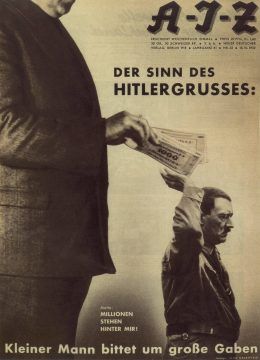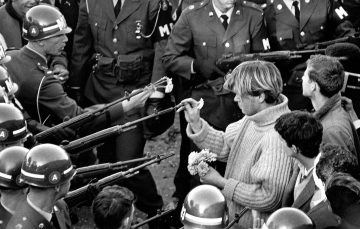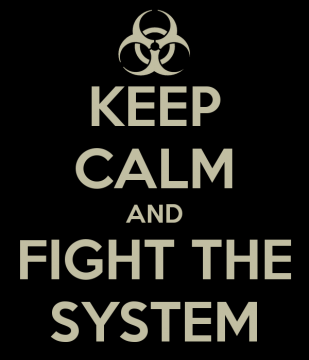by Jackson Arn

Slurs have a way of mellowing into labels. History is full of Yankees and Cockneys, Methodists and Jesuits, Whigs and Tories, who steal a term of abuse and apply it to themselves as an act of sardonic revenge. Sometimes the tactic works too well, and people forget that the word was ever tainted. And sometimes the definition changes so many times people lose count, and the word is left to drag a muddle of meanings behind it.
“System” is such a word. Its DNA is full of recessive genes ready to reappear in the next generation. It suggests the banal and the sinister equally, a low, humming scientism and a hiss of danger. Politicians use it with both connotations in mind, sometimes both at once. Immigrants, trans activists, thwarted unionists are advised to have faith in the system, even as other politicians mock them for gaming it—can the two systems really be the same? Political science majors, not yet disillusioned, dream about the day they’ll change the system from within. In 1969, Bill Clinton, 23 years old and already impatiently waiting to be president, wrote, “I decided to accept the draft in spite of my beliefs for one reason: to maintain my political viability within the system.” Today, everyone seems to agree that the system, whatever it might be, is rigged. The word’s ambiguity is its longevity.
From the Greek: sun, meaning “with,” and histanal, meaning “set up, stand”—thus, a whole made out of parts, standing together. Which parts, and why they stand together, is left unclear—an ambiguity the rest of the sentence is supposed to correct but rarely does. This ambiguity is a part of the modern condition, since modernity depends on systems. Systems, rather than deities or monarchs, keep us safe: systems, for which individual parts are important but never all-important; systems, whose purpose, by definition, cannot be found in any single one of these parts.
Modernity is supposed to be an age of science, and the recent history of science is largely a history of systems. The word is already there, waiting for someone to connect the pieces: 1543, the solar system; 1628, the circulatory system; 1900, the nervous system; 1902, the endocrine system; 1956, the earliest mention of computer systems. In 1962, a NASA technician became the first person to say, “All systems go,” which isn’t a bad description of modernity itself.
In a system, everything, no matter how big or small, is replaceable: subject to the system’s rules, sometimes tyrannized by them. Even when tyranny never appears, the fear of tyranny remains. The invisibility of systems can seem dangerous, and the impossibility of doing away with them can seem suffocating instead of reassuring. Systems are, by definition, impersonal. We rely on the health care system, not this doctor or that nurse, to try to save us. Systems are both superhuman and subhuman. We fear a tyrannical, superhuman system, a system of systems—in short, The System. Studying the etymology of the phrase proves how universal the fear is—and should be as sobering for the Left as it is for the Right.
In college I studied Modernist literature. For most of that time, I managed to convince myself that Fascism wasn’t Modernism’s cruder, duller cousin. When professors brought up Eliot’s anti-Semitism or Yeats’s nationalism, I brushed these off as pesky footnotes, separable from the glories of their poems, which expressed, could only express, an authentically radical Leftism. Eventually the list of Fascists and Fascist sympathizers got too long to rationalize away: Yeats, Eliot, Pound, Marinetti, Heidegger, Spengler, Lawrence, Lewis, Céline. One reason I didn’t recognize the obvious sooner is that Fascist rhetoric sounds uncannily like its left-wing counterpart—the same terms exit stage right and pop up, a split-second later, on the other side. Eliot mourning the unreal city of bowler-hatted stiffs might be mistaken for Abbie Hoffman mocking the over-thirties, at least until Eliot starts comparing Jews to rats.
I shouldn’t have been surprised, but was, to learn that The System entered the political lexicon at the height of Modernism, and that the earliest activists to condemn The System were Nazis. “Stürzt das System!” is the title of a 1932 pro-Hitler pamphlet; “Gebt dem System die antwort!” howls a Hitler poster from the same year. (Bring down The System! Give The System your answer!) In the poster, “System” is spelled in a moldy, vermicular letters; “Hitler,” with its proud, straight, sans-serif font, is supposed to be a breath of fresh air.
The Weimar Republic: incapacitated by war; run, or “run,” by officials so incompetent they could barely curb ten-fold inflation; renowned for its sexual progressivism not because of any collective enlightenment but because the police force was too feeble to stop it—this was the regime the Nazis accused of being a vast, diabolical conspiracy. “Das System” could barely keep itself going, much less the social order, but it was easier to blame Germany’s problems on strength than weakness. On page five of the pamphlet, the author rues the withdrawal of German troops from West Prussia. Proof of the Weimar’s weakness? Not at all—“The System’s first success.”
Even in a pamphlet, the rhetorical stumbles are hard to ignore. On page three, a dubiously attributed quote announces that “the capitalist system has collapsed” and been replaced with a pack of Jew-Marxist traitors—i.e., the capitalist system (the good one) has been replaced by The System, an absolute evil. What do these two systems share that allows them to be referred to so off-handedly by the same word? When the pamphlet accuses The System of encouraging inflation “to satisfy the greed of party leaders,” it begins to sound curiously like the Marxists it’s attacking. What separates one system from the other, more than any fine-shaded logic, is the blunt force of slogans and slurs. The Nazis claim they’re shaking you out of your false consciousness and delivering you the truth: the Weimar may seem incompetent, but only because Jewish thieves and profiteers, the real power elite, have stayed out of view.
The System is evil, The System is all-powerful, The System sucks your bank account dry and leers at your children while they sleep. The only way to fight an enemy this deadly is to replace it with an equal-but-opposite system—one that exerts total power over the country, drains funds to pay for itself, and watches you while you sleep. Das System is the glue that holds Hitler’s nonsensical vision in one piece. It is also his first draft of the Third Reich.
Just as the Reich begins, in posters and pamphlets, as a mirror image of Das System, the earliest anti-Hitler propaganda is a mirror image of a mirror image. The same year Nazis urged voters to give The System their answer, John Heartfield’s photomontage tried to out-Hitler Hitler by framing him for a conspiracy that made Das System look like anarchy. The image recodes the Führer’s famous salute so that, slack-handedly, he accepts money from a fat, faceless giant and becomes the thing he claims to despise, a puppet strung to wicked bankers. The caption: “Millions stand behind me!”
A clever twist, to be sure. Still, it’s strange how Fascism’s satirists began by paying their opponents the same compliment the Fascists had paid theirs. For Heartfield, as for Freud, there are no accidents, and so Hitler must be something more than an isolated madman. There must be a master plan: for Hitler to denounce a conspiracy of wicked bankers requires its own conspiracy of wicked bankers. The collage is designed to flatter the same paranoids Hitler was courting in the 1930s: Germans who were ready to blame everything on Jews, financiers, and Jewish financiers.
The rhetoric of systems is so powerful that it can’t easily be dismissed outright, only counterbalanced. The conspiracy theory on the Right nourishes the conspiracy theory on the Left. In each case, the myth of total, frictionless control remains; the difference is who does the controlling. Other, more banal explanations—e.g., there’s no conspiracy, people are just incompetent, or lucky, or dumb—soon slip away. Why is this the case? You might think of William James, who wrote about mankind’s bad habit of favoring malice over stupidity when searching for the causes of things. Or you might think of Donald Trump, right after Hillary Clinton accused him of being Putin’s puppet: “No puppet! No puppet! You’re the puppet! Believe me!”

The Man, Big Brother, Babylon—1960s radicals bestowed poetic nicknames on the enemy like the famous hippie offering the soldier’s rifle a flower. Even an outlier like Ken Kesey’s “The Combine” is unusually vivid for political vernacular; when I read One Flew Over the Cuckoo’s Nest in high school, my English teacher wallowed in the word, stretching out its syllables with faintly erotic glee. Simply by studying the nicknames we learn few things about the enemies of the counterculture: they’re powerful, too vast to be seen all at once, with an affect more masculine than feminine.
My teacher excepted, “The Combine” has faded away, along with the rest of its author’s creations. “Big Brother” had its meaning diluted by reality TV. “The Man” did a 180. “Babylon” went the way of the city. Of all the phrases popularized in 60s America to describe the stifling power structures of modern industrialized society, why was the most boring, “The System,” the only one that really survived?
When talking about The System, it could be that the usual rules of linguistic longevity reverse themselves: vagueness becomes an asset, vividness a barrier to mainstream acceptance. Another way of saying this is that The System is, by definition, an abstraction; it’s faceless, colorless, so that the phrase’s lack of descriptiveness is a kind of description. To call The System Big Brother humanizes it and, in so doing, misses the point (and misses the point of 1984, too—the novel suggests that there is no human being called Big Brother, just an image meant to distract the public from the weak, unsexy bureaucracy spread across Oceania).
A second, more poignant reason for the longevity of “The System” betrays the ambitions of the radical lefties who popularized it. The greatest trick the devil ever pulled was convincing the world he didn’t exist; likewise, the greatest enemy a radical could fight was the one so elusive it often seemed nonexistent. The System was this enemy—racism, sexism, warfare, and all the rest were sideshows by comparison, diverting attention from the real danger.
This may sound like a familiarly Marxist way of distinguishing between petty reform and genuine change. But more often than not it pointed American radicals somewhere other than capitalism. “While such immediately emergencies as the Vietnam war, racial injustice, and hard-core poverty demand a deal of old-style politicking,” wrote Theodore Roszak in 1969’s The Making of a Counter Culture, “the paramount struggle of our day is against a far more formidable, because far less obvious, opponent, to which I will give the name ‘the technocracy.’” Technocracy “easily eludes all traditional political categories. Indeed, it is characteristic of the technocracy to render itself ideologically invisible. Its assumptions about reality and its values become as unobtrusively pervasive as the air we breathe.”
Set aside the particulars of Roszak’s definition of technocracy. Set aside, for just a moment, the fact that he uses the word “technocracy.” Isn’t this the perfect description of The System—pervasive, unobtrusive, formidable, invisible? Notice, too, that it’s not merely invisible; it renders itself invisible, much as it easily eludes political categories. Unlike capitalism, this creature doesn’t stay still under the microscope; it wriggles away from our theories and mutates with each inoculation. Roszak went on to define technocracy as the society predicated on expertise, specialization, and scientific rigor. But even this thorough definition came with an asterisk. Opposing technocracy, he understood, would be a constant struggle, and any radical who believed that she’d mastered the concept ran the risk of aping technocratic structures without realizing it. Such was the challenge of fighting The System: the closer you looked, the less visible it became.
Sometimes the first person to identify a problem understands it best. When he’s remembered at all, Roszak is remembered for coining “counterculture,” the term that was somehow open-ended enough to accommodate hippies and beatniks, Commies and Anarchists, stoners and Krishnas. Like “The System,” the word’s power lay in its vagueness. A poli sci major at Columbia protesting the war and a San Francisco hippie dropping acid didn’t have anything much in common, but they were united, if in nothing else, in their opposition to the status quo. Roszak recognized that vagueness was crucial when defining the counterculture, and not just for the sake of assembling a broad coalition. Vagueness was a way of building a resistance to The System without mirroring, à la John Heartfield, The System’s fantasies of control. It was a way of cheering on young radicals without stifling their creative energy:
The young, miserably educated as they are, bring with them almost nothing but healthy instincts. The project of building a sophisticated framework of thought atop those instincts is rather like trying to graft an oak tree upon a wildflower. How to sustain the oak tree? More important, how to avoid crushing the wildflower? And yet such is the project that confronts those of us who are concerned with radical social change.
Here, in five sentences, is the story of the counterculture: the subtle mixture of admiration and condescension older Americans felt for the Baby Boomers; the challenge of translating “instinct” into “radical social change”; the paradox of deferring to a demographic that deferred right back. The counterculture never achieved its aims, of course. Even in the passage Roszak senses that it’s doomed, and while he can’t yet articulate why, I—with the benefit of an extra fifty years—certainly can: Roszak and his fellow intellectuals wasted too much time searching for honorable ways of sustaining the radical spirit. Meanwhile, opportunistic politicians and producers and CEOs siphoned it off.
The turning point never quite turned—at least not if you believe in the existence of The System, and the necessity of getting rid of it. From almost any other perspective, the counterculture movement was a success, liberalizing America’s major institutions without the mess of destroying them altogether. But while the distant, utopian goal of dismantling The System remained distant for America’s radicals, the term itself got more banal than ever, like a coin whose inscription has faded with overuse to the point where anybody, establishment or counterculture, Left or Right, can spend it on whatever they want.

Like blue jeans or Bob Dylan, “The System” moved between a number of wildly different fan bases before settling, with the end of the 20th century, in what might as well be the center. Today it’s a part of every American’s vocabulary, not because everyone agrees what it means but because it has meant almost everything to everyone at some time or other—it’s an example, in other words, not of consensus but of what passes for consensus.
New meanings have kept accumulating. As late as the mid-70s, nobody talked about gaming the system. On November 19, 1975, the phrase appeared in writing for the first time, awkwardly scare-quoted, in the minutes of a systems engineering conference held in the gaming capital of the world, Las Vegas. “One must be open,” section 12 concludes, “about the possibilities for ‘gaming’ the system … Every system will be the target of criticism. It is important not to claim too much, to identify clearly the possible shortcomings, and to emphasize the role of overriding judgments …”
Two months later, while campaigning for president, Ronald Reagan told a story about a woman from Chicago. This woman had 80 names, 30 addresses, and 15 phone numbers, which she used to collect 150,000 dollars-worth of food stamps, veterans’ benefits, and unemployment relief (the number got bigger as campaign season dragged on). It was because of scammers like this, Reagan said, that the welfare system needed to be gutted. It didn’t matter that this woman, whose real name was Linda Taylor, was a petty thief whose plunder totaled something like eight grand and who had already been arrested for her crimes. The mere fact that she could game the system meant that the system was bad.
Reagan never used the words “gaming the system” in his speech (he never called Linda Taylor a “welfare queen,” either, though plenty of others soon did). But by the time he entered the White House, the term was everywhere, clothing the bigotry of 80s America in a cool, pseudoscientific lingo. Without meaning to, a group of systems engineers had given the neocons the rhetorical weapon they desperately needed: a way of shifting the discussion about poverty relief away from actual poor people and toward the cheaters.
The tactic worked brilliantly—but only because it ignored, curiously enough, the point those systems engineers had been making. Rather than accept that all systems had “possible shortcomings” and that it was overridingly important to feed the poor, Republicans offered tales of system-gamers like Linda Taylor as proof that America would be better off without Social Security, Medicaid, and all that nonsense. “Any social transfer,” Charles Murray wrote in Losing Ground: American Social Policy, 1950-1980, “increases the net value of being in the condition that prompted the transfer.” You can’t have welfare, in other words, without encouraging people to game the system, so why bother? Better to scrap everything—for poor people’s own good, naturally. Murray’s book became a bestseller soon after it was released in October 1984. A few weeks later, Reagan defeated Walter Mondale in one of the biggest landslides in U.S. history.
To put it rather more bluntly: in 1984, the man who’d repeatedly insisted that government was the problem, not the solution, was reelected leader of the biggest government in the world. It was a massive victory for evangelical activism and media savvy. But it was also a victory of rhetoric—of piquant little phrases like “welfare queen” and “gaming the system” and “limited government” that belittled the great political achievements of the previous generation and glossed over the contradictions of the present one. And the contradictions were colossal: how else could the conservative wing be, at the same time, The System’s harshest critic and its commander?
By the time Reagan’s second term was over, what had once seemed like hypocrisy had become a respectable mode of American politics, left and right. In 1996, a supposedly liberal president promised America that the era of big government was over, even as he presided over a federal government that made Reagan’s look puny. Twenty years later, a supposedly conservative presidential candidate, convinced that he was going to lose badly, complained that the system was rigged, only to learn that it had crowned him the winner.

One of the very few conveniences of being a journalist in the 2010s was that you could always write about the 50th anniversary of something that happened in the 60s. The 60s anniversary piece has become a genre unto itself, with its own stock characters, narratives, and tones (rereading this article, I see myself echoing some of these without meaning to). The popularity of the genre suggests two things: first, 60s culture remains a bottomless pit of inspiration; second, the 60s are remembered, rightly or wrongly, as a high point for the Left in America. A proposal, then: the current state of the Left can be broadly understood as a combination of the 60s rhetoric of The System with the diminished expectations of the ensuing five decades. The enemy is the same, but the chances of victory have shrunk.
Prejudice, environmental disaster, economic inequality—we’ve been trained to think about these things the way Victorians thought about cholera. Bigotry hovers miasmatically over all things, all the time. Any display of bigotry contains the totality of the problem. To treat the display as an isolated instance is naïve, because then you’re ignoring the system that produces it. Address what’s right in front of you and you run the risk of passively accepting what’s going on everywhere else.
It’s a distinctly modern dilemma—finite power to do good, but infinite knowledge of the world’s evil. What happiness is possible when you’re constantly aware of everything wrong? Individual pleasures come to seem trivial and fragmentary; the world’s problems swell into a system as grand and impeccably organized as the cosmos. George Eliot wrote about this feeling in Middlemarch:
“I suppose I am dull about many things,” said Dorothea, simply. “I should like to make life beautiful—I mean everybody’s life. And then all this immense expense of art, that seems somehow to lie outside life and make it no better for the world, pains one. It spoils my enjoyment of anything when I am made to think that most people are shut out from it.”
“I call that fanaticism of sympathy,” said Will, impetuously. “You might say the same of landscape, of poetry, of all refinements. If you carried it out you ought to be miserable in your own goodness, and turn evil that you might have no advantage over others. The best piety is to enjoy—when you can. You are doing the most then to save the earth’s character as an agreeable planet.”
Reading these paragraphs, it seems to me that both Will and Dorothea are being impetuous and simple. Both of their positions strike me as misguided, even if I’m unable to say exactly why. I agree that people should sympathize with other people, and that the more people learn about others, the more sympathizing they do and the more guilt they end up feeling. And I can’t disagree with the fact that this guilt achieves nothing in itself, whereas happiness at least makes you happy, if nobody else.
Maybe the problem is one of perspective, not reasoning. It’s the concept of a boundless, invisible system that paralyzes us or infects us with guilt or denial. The counterculture tried to fight The System and lost, not because of any weakness but because it had dreamed up an opponent that was, almost by definition, invincible. Now we’re supposed to content ourselves with chipping away, little by little, at the same elusive opponent. If The System can’t be defeated, it can at least be satirized, subverted, parodied, reclaimed, reappropriated—in a word, gamed. These sour little forms of resistance claim ever so much and achieve strikingly, conveniently little—like shrugging and patting yourself on the back at the same time.
If there’s another way forward, it might be science—not technocratic business-as-usual or capital-T Theory, but rigorous hypotheses and tests applied to righteous causes. Throughout the 90s and the 2000s, the social scientist Claude Steele conducted experiments that measured the effects of prejudice on American students. Steele was trying to explain why black high schoolers with excellent grades and SATs underperformed in college. His experiments showed that college teachers and students were participating in forms of stereotyping without having any idea what they were doing. The tiniest stimulus—a professor wearing a cardigan, say—could lead a female student of color to score poorly on a test, with neither the student nor the professor knowing why. The student might blame herself and drop the class.
Here, at last, was scientific evidence for the existence of The System, or a version of it: stereotyping as an invisible structure in which everyone, even the most progressive, open-minded people, blindly participated. The problem of the achievement gap was deeper than anyone had thought. But its effects were easier to fight. Where his predecessors had resorted to handwringing and victim-blaming, Steele showed how something as simple as a thirty-second mental exercise, repeated for a few months, could eliminate the achievement gap in a classroom, even if the gap’s material sources stayed put.
There’s a tendency to brush aside scientific findings like these—to dismiss them as Band-Aids, ignoring the systemic roots of the problem. I felt that instinct myself as I wrote the last paragraph. But radical change isn’t to be preferred simply because it’s radical; what matter are the lives of the people helped by change—even one classroom-worth of racial progress is an absolute good that compounds and multiplies with time. This, I submit, is the final, dangerous triumph of the concept of The System: it makes failure seem chic and success, any success, pathetic. After nine long decades in the lexicon, it’s overdue for retirement. In its place, we could do worse than more Middlemarch:
the growing good of the world is partly dependent on unhistoric acts; and that things are not so ill with you and me as they might have been, is half owing to the number who lived faithfully a hidden life, and rest in unvisited tombs.

